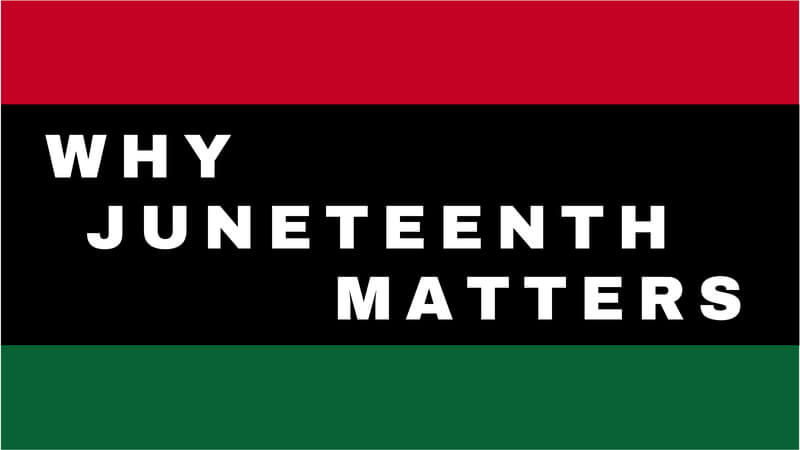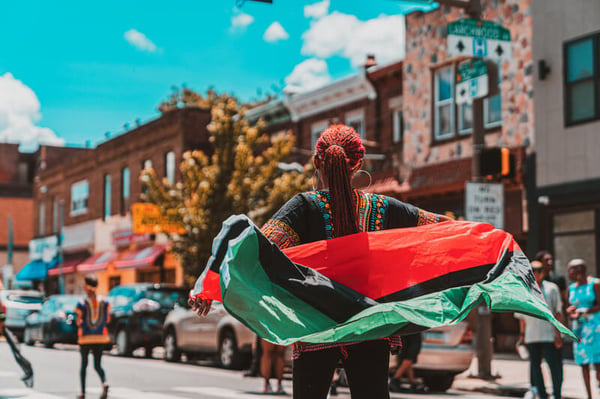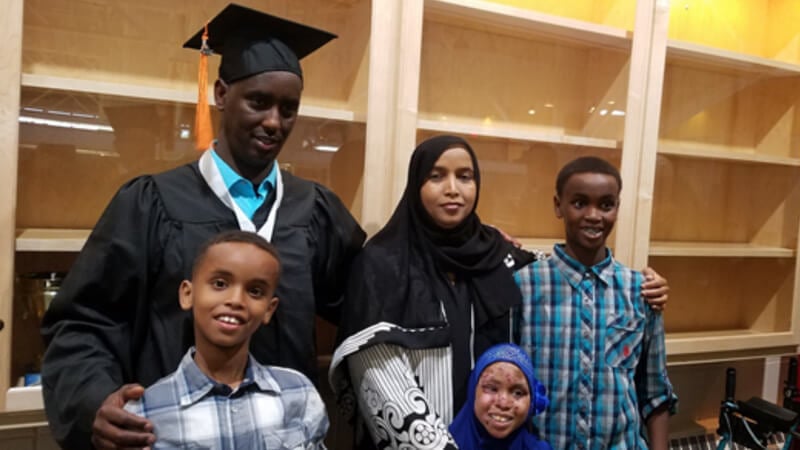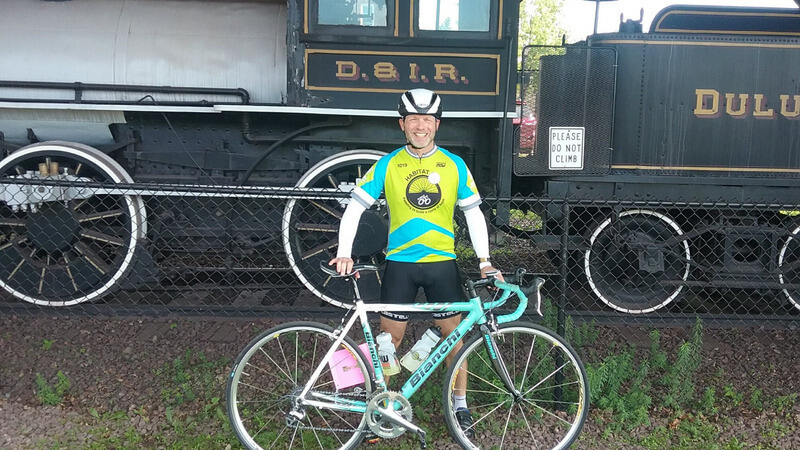Celebrating National Homeownership Month with our Homeowner Photo Contest Entries
We continue to process the pain and hope of our nation’s uprising for racial justice amid a global health crisis. You can see our recent statements...

We continue to process the pain and hope of our nation’s uprising for racial justice amid a global health crisis. You can see our recent statements on the uprising here, our COVID-19 web page here, and our Race & Housing resource center here. Expanding homeownership is a key component of racial equity and health, so our mission has never been more important—and we’ll continue to share the stories of Habitat’s work.
Co-authored by Shereese Turner, Chief Program Officer, and Kaitlyn Dormer, Communications Manager
“A few months into starting at Habitat in 2018, I was in a meeting where everyone was asking about how people had celebrated the Fourth of July that past weekend,” Shereese recounts. “I told them ‘I didn’t do anything; I don’t celebrate the Fourth of July. I celebrate Juneteenth.’”
Silence.
Other than Shereese, the room was entirely White folks. No one was bold enough to admit they hadn’t heard of Juneteenth. The moment repeated itself a year later. Still silence.
But this year for the first time, Twin Cities Habitat for Humanity is observing Juneteenth as an organizational holiday, along with many other workplaces around the country, including Habitat for Humanity International. We’re listening, we’re growing, and we’re beginning to understand the importance of this too-little-known holiday.
“I had never heard about Juneteenth when I was in elementary school and high school, because it was never taught,” Shereese admits. “It wasn’t until 1996 that I was invited to my first Juneteenth celebration and I had to ask what they were celebrating.”

Juneteenth celebration image courtesy of Tippman98x / Shutterstock.com
Juneteenth is the oldest national commemoration of the end of slavery in the United States. The holiday marks the anniversary of the day the last enslaved people were informed of their freedom in Galveston, Texas on June 19, 1865—more than two and a half years after President Lincoln’s Emancipation Proclamation.
Yes, it took two and a half years for word of the official end of slavery to reach some 200,000 enslaved people in Texas, almost certainly due to deliberate attempts by enslavers to withhold the information and maintain their plantation labor.
Juneteenth was celebrated in Texas and other states starting the following year, 1866, and has endured as an important commemoration of African American freedom and achievement.
But we rarely learn about it, even within the African American community. We celebrate July 4, 1776 as Independence Day, but we neglect the truth that our country denied enslaved people their independence for 89 years after that historic day.
This year at Habitat, we’re no longer avoiding that truth. We’re acknowledging it and amplifying it. We ask our Habitat community—staff, clients, volunteers, and supporters—to join us in celebrating Juneteenth.
“I’ve conformed to all of your holidays and I don’t question it. And by observing Juneteenth, you’re acknowledging that we exist. It’s a day we should all celebrate,” says Shereese.
Take time today to learn about the systemic racism baked into our way of life, including in housing. Engage with your community and support organizations working to advance racial justice and rebuild our neighborhoods. Celebrate the far-underappreciated contributions of Black Americans to American history, art, politics, culture, and music—a Google search for “Black Excellence” will help you start.
“I always take the day off for Juneteenth,” says Shereese. “I invite family over and we barbecue. As we do for all our holidays, we set aside a plate for our ancestors. Sometimes we take a short vacation. But we always tie in a history lesson.”
This year, Shereese and her husband are heading to Duluth to visit the memorial site of the Duluth lynchings. One hundred years after that horrific event, Shereese reflects on the ongoing fight for Black lives that has gained momentum after the killing of George Floyd:
“This is not a moment. It’s a movement, and there is sacrifice to the movement. I think about these young folks out there day and night going to fight the fight. That in itself is just so profound…What I see with this younger generation is that they’re fighting to make sure the opportunities are possible for everybody.
“I’m inspired. I’m hopeful. I’m grateful that this group of mostly young people are the ones to make the sacrifices to ensure that this doesn’t become a moment. We see folks truly acknowledging what has happened. I’m forever indebted to this generation who took a stance and said enough is enough.”
Juneteenth is also an opportunity to spotlight African American achievements and contributions. In modern terms, it’s a celebration of Black excellence—in art, music, business, and politics.
If you’re looking for a place to start, Shereese recommends a few of her favorite artists producing “music that hits your soul”:
However you spend your day, we encourage you to recognize this important holiday, wrestle with the truths of our past and present, and reflect on how you’ll participate in the centuries-long fight for racial justice.
Observing Juneteenth is one step. Twin Cities Habitat is committed to advancing racial equity in our organization and through our work. You can read our recent statements here and you can expect to see more actions on our blog soon.
 Shereese Turner is the Chief Program Officer at Twin Cities Habitat for Humanity. Shereese has led the Programs and Services division since 2018, after serving as the Director of Programs and Operations at Twin Cities R!SE for 11 years. She is an inspiring, passionate leader who builds bridges with community partners and advocates for underrepresented communities. Shereese is a co-founder of the Stop the Violence Bring the Unity Movement and serves on the Haven Housing board. She has a degree in Public/Non-Profit Management from Metropolitan State University and a Master’s in Health and Human Services from St. Mary’s University. Shereese is married with three adult children, two daughters-in-love(law), two granddaughters, her favorite canine Roxy, and resides in Minneapolis.
Shereese Turner is the Chief Program Officer at Twin Cities Habitat for Humanity. Shereese has led the Programs and Services division since 2018, after serving as the Director of Programs and Operations at Twin Cities R!SE for 11 years. She is an inspiring, passionate leader who builds bridges with community partners and advocates for underrepresented communities. Shereese is a co-founder of the Stop the Violence Bring the Unity Movement and serves on the Haven Housing board. She has a degree in Public/Non-Profit Management from Metropolitan State University and a Master’s in Health and Human Services from St. Mary’s University. Shereese is married with three adult children, two daughters-in-love(law), two granddaughters, her favorite canine Roxy, and resides in Minneapolis.
 Kaitlyn Dormer is the Communications Manager at Twin Cities Habitat for Humanity. Kaitlyn has been with the organization since 2014, first as Events Assistant for one year, then as Executive Assistant & Board Liaison. Kaitlyn graduated from the Villanova School of Business with majors in Marketing and International Business and a minor in Latin American Studies. Originally from New Jersey, Kaitlyn quickly adapted to Minnesota and developed her love for camping, hiking, biking, and sweaters.
Kaitlyn Dormer is the Communications Manager at Twin Cities Habitat for Humanity. Kaitlyn has been with the organization since 2014, first as Events Assistant for one year, then as Executive Assistant & Board Liaison. Kaitlyn graduated from the Villanova School of Business with majors in Marketing and International Business and a minor in Latin American Studies. Originally from New Jersey, Kaitlyn quickly adapted to Minnesota and developed her love for camping, hiking, biking, and sweaters.
Your gift unlocks bright futures! Donate now to create, preserve, and promote affordable homeownership in the Twin Cities.

We continue to process the pain and hope of our nation’s uprising for racial justice amid a global health crisis. You can see our recent statements...

We continue to process the pain and hope of our nation’s uprising for racial justice amid a global health crisis. You can see our recent statements...

We continue to process the pain and hope of our nation’s uprising for racial justice amid a global health crisis. You can see ourrecent statements...